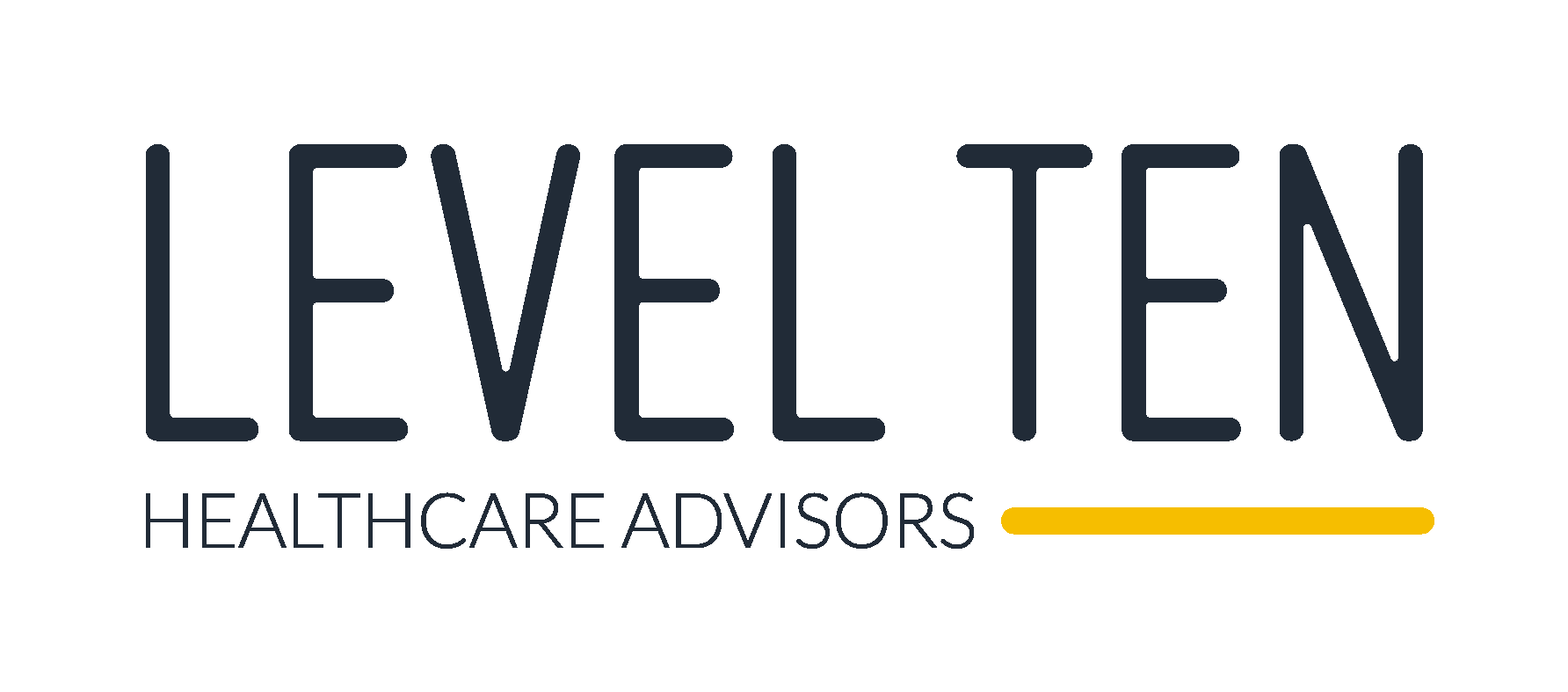

Engage and Retain Your Best Healthcare Leaders
In the dynamic world of healthcare, building the skills of your existing and emerging leaders is not a luxury but a necessity.
As CEOs and HR leaders, we know you grapple with staffing and operational challenges and understand the unique pressures you face to innovate operations, increase employee engagement, and improve the patient experience.
We're committed to providing tailored leadership development solutions that address your most mission-critical objectives, ensuring your organization's success through dedicated, empathetic leadership.

What is it Costing You to Delay Organizational Transformation?

of healthcare employees say that a negative workplace culture has caused them to look for a new job.

of patients who switched healthcare providers did so because of a poor patient experience.

of healthcare employees would consider leaving their organization if they didn't see a commitment to innovation.

Achieve Rapid, Impactful Leadership Development for Your Health System
Strong Leadership is Key
Our philosophy is that if you want to transform your organization, you have to transform your relationship with your employees. This transformation must start from the top with an intentional commitment to developing and equipping your leadership teams.
Without the skills and acumen leaders need to bring the best out of their employees, your impact as an organization will be limited, but substantial transformation is possible when leaders all throughout the organization are empowered and emboldened to positively impact every interaction and initiative within your health system.

Healthcare Leadership Development
In the ever-evolving landscape of healthcare, the significance of effective leadership cannot be overstated. Hospitals and healthcare institutions require strong, visionary leaders who can navigate complex challenges while ensuring optimal patient care. This is where leadership development programs for healthcare come into play. These programs are specifically designed to equip healthcare professionals with the skills and knowledge needed to excel in leadership roles within the industry.
Leadership training for hospitals is an essential component of healthcare leadership development. Hospitals are intricate organizations with diverse teams, and effective leadership is vital to ensure smooth operations and quality patient care. Leadership training equips hospital leaders with the tools to lead by example, communicate effectively, and make informed decisions that impact both staff and patients positively.
The goals of leadership development programs in healthcare extend beyond basic management skills. These programs aim to cultivate transformational leaders who can adapt to the dynamic healthcare environment, lead multidisciplinary teams, and drive innovation. By fostering leadership skills, these programs contribute to improved patient outcomes, employee satisfaction, and overall organizational success.
The role of leadership development in healthcare is multi-faceted. In a sector characterized by constant advancements and regulatory changes, strong leaders are crucial to guide healthcare organizations through uncertainty. Leadership development fosters a culture of continuous learning and improvement, enabling leaders to stay informed about best practices, patient-centered care, and emerging technologies. Moreover, effective leadership trickles down to every level of the organization, positively influencing teamwork, morale, and the quality of care provided.
Leadership Development Plan
To thrive in the competitive healthcare landscape, organizations need a comprehensive leadership development plan. This plan serves as a roadmap for identifying and nurturing potential leaders from within the organization. By building your hospital’s leadership model, you can tailor leadership development initiatives to align with the unique values and goals of your healthcare institution.
A well-structured healthcare leadership development plan includes various components. It outlines strategies for identifying high-potential individuals, assessing their strengths and areas for improvement, and creating personalized development paths. These paths may involve targeted training, mentorship, and exposure to leadership opportunities.
Implementing effective healthcare leadership solutions requires a holistic approach. Beyond traditional leadership skills, healthcare leaders must possess industry-specific knowledge, empathy, and the ability to navigate ethical dilemmas. Leadership development programs should incorporate case studies, role-playing, and real-world scenarios to simulate the challenges healthcare leaders may encounter.
Creating a leadership development strategy involves aligning leadership development goals with organizational objectives. This ensures that the development of leaders is directly linked to the overall success of the healthcare institution. Moreover, a well-structured strategy should be adaptable, considering the ever-changing healthcare landscape and the need for leaders who can respond to new challenges with agility and innovation.
Leadership Development for Physicians and Nurse Leaders
Physicians and nurse leaders play pivotal roles in healthcare, not only in patient care but also in guiding healthcare teams. Therefore, providing effective leadership training for physicians is essential. Physicians often transition from clinical roles to leadership positions, and training equips them with the skills to manage teams, communicate effectively, and make strategic decisions.
Training nurse managers as leaders is equally crucial. Nurse managers bridge the gap between clinical staff and higher management, making their leadership skills vital for maintaining effective communication and collaboration. Leadership development programs for nurse managers focus on empowering them to create positive work environments, promote patient safety, and manage resources efficiently.
Frontline employees are the backbone of healthcare organizations, and leadership skills for frontline employees can have a significant impact on patient care. When these employees are empowered with leadership skills, they are better equipped to handle high-stress situations, communicate effectively with patients and their families, and contribute to a culture of continuous improvement.
One of the significant benefits of leadership development is its role in preventing employee burnout. Healthcare professionals often face intense workloads and emotional challenges. When leaders are trained to recognize signs of burnout and address them proactively, they can create supportive environments that prioritize well-being and job satisfaction.
Training Your Managers and Directors to Be Better Leaders
For healthcare institutions to thrive, their middle and upper management must be well-prepared to lead effectively. Providing leadership training for managers is an investment in the organization's success. These training programs equip managers with the skills to motivate their teams, manage conflicts, and foster a culture of accountability.
Training healthcare directors and managers to be leaders involves preparing them to oversee departments and make strategic decisions that align with the organization's goals. Effective leaders at this level must have a deep understanding of healthcare operations, regulatory requirements, and financial management.
Top skills that directors need to lead their departments encompass a combination of leadership, communication, and strategic thinking abilities. These skills include the ability to inspire innovation, adapt to changes in the healthcare landscape, and collaborate across various departments to achieve common objectives.
Training new leaders in healthcare is an ongoing process. As leaders retire or move on to new roles, the organization must have a mechanism in place to identify potential successors and groom them for leadership. Leadership development programs should focus on mentorship, shadowing experienced leaders, and gradually increasing responsibilities to ensure a smooth transition.
Leadership Development Outcomes
Effective leadership training programs yield a myriad of positive outcomes within healthcare organizations. One of the notable impacts is driving employee engagement. When employees perceive that their leaders are invested in their growth and development, they are more motivated to contribute their best work, resulting in higher job satisfaction and productivity.
Supporting employees with leadership development creates a healthy organizational culture. When leadership is seen as a shared responsibility and not limited to those in formal positions, collaboration and mutual respect flourish. This leads to improved teamwork, reduced silos, and a more cohesive healthcare environment.
As healthcare professionals become better leaders, it naturally helps improve the patient experience. Effective leadership fosters clear communication, efficient processes, and patient-centered care. When leaders prioritize patient well-being and satisfaction, the overall quality of care rises, leading to better outcomes.
A significant advantage of leadership training is its impact on employee retention and loyalty. Healthcare professionals are more likely to stay with an organization that invests in their growth and provides opportunities for advancement. This reduces turnover rates, saves on recruitment costs, and contributes to a stable and experienced workforce.
Embracing Leadership Development at Your Health System
Healthcare leadership development is a cornerstone of a successful healthcare institution. It encompasses training for various roles within the healthcare ecosystem, from frontline employees to physicians, nurse leaders, and upper management. By fostering effective leadership skills, organizations can drive employee engagement, improve patient care, and create a culture of continuous improvement. Through well-structured leadership development plans and strategies, healthcare institutions can navigate the challenges of the industry while maintaining a focus on quality care and positive outcomes.
To explore bringing a leadership development initiative to your health system contact our team.
Related Resources
Services: Leadership DevelopmentInvest in Your leaders
and Move Your Organization Forward
Connect
Schedule 30 minutes to start a conversation with our team.Collaborate
Collaborate with us to determine your organization’s needs.Transform
Implement positive change with a strategic partner by your side.Schedule a Call
At Level Ten Healthcare Advisors, we take time to understand your needs. We create a customized roadmap that guides you to build success at your pace. Our team of healthcare advisors works as your partner—defining and advancing strategic priorities that transform your organization today and tomorrow.

